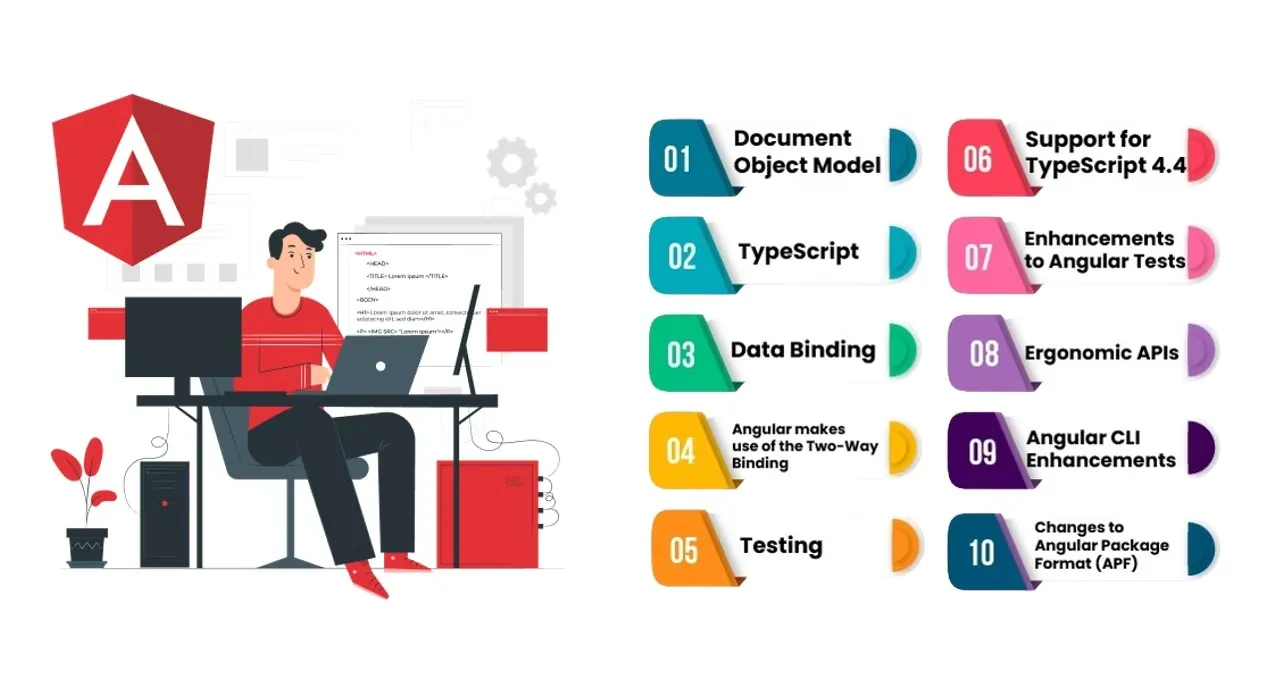Cenet Whispers
Your source for the latest insights and trends.
Angular Development: The Secret Sauce for Dynamic Web Apps
Unlock the power of Angular! Discover the secret sauce to creating dynamic web apps that captivate users and boost performance.
Why Angular is the Go-To Framework for Building Dynamic Web Applications
Angular has emerged as the go-to framework for building dynamic web applications due to its powerful features and unparalleled performance. Its component-based architecture allows developers to create reusable UI components, which not only enhances productivity but also leads to cleaner and more maintainable code. Additionally, Angular's two-way data binding ensures that any changes in the user interface are instantly reflected in the application's data model, making it easier to develop highly interactive applications. This seamless synchronization between the view and the model significantly reduces development time and enhances the overall user experience.
Another compelling reason why Angular stands out is its comprehensive suite of built-in tools and libraries. With features like routing, state management, and form handling, developers can efficiently handle complex web applications without the need for multiple external libraries. Furthermore, Angular's strong support for TypeScript provides static typing, making the code less error-prone and improving overall scalability. As applications grow in complexity, the structure and best practices enforced by Angular ensure that the development process remains organized and efficient, thus solidifying its position as the leading framework for dynamic web applications.

Exploring the Core Features of Angular Development for Modern Apps
Angular has become a cornerstone for developing modern web applications due to its robust framework and versatile features. One of the core features that sets Angular apart is its two-way data binding, which simplifies the process of synchronizing data between the model and the view. This means that any changes in the user interface immediately reflect in the data model, and vice versa. Additionally, Angular’s component-based architecture allows developers to create reusable UI components that enhance modularity and maintainability. The framework supports dependency injection, making it easier to manage services and streamline development, which is essential for building scalable applications.
Another significant aspect of Angular development is its support for routing, which enables developers to define navigation paths within the application. This feature not only enhances user experience by allowing seamless transitions between views but also contributes to better performance through lazy loading of modules. Angular also excels with its testing capabilities, offering tools like Jasmine and Karma that facilitate unit and end-to-end testing. By incorporating RxJS for reactive programming, developers can handle asynchronous data streams efficiently, ultimately leading to the creation of highly interactive and responsive applications. Overall, the core features of Angular equip developers with the necessary tools to create cutting-edge applications in today’s digital landscape.
How Angular Enhances User Experience in Dynamic Web Applications
Angular is a powerful framework that plays a crucial role in enhancing user experience in dynamic web applications. By utilizing a component-based architecture, Angular promotes reusability and maintainability, which leads to faster development cycles. Additionally, its features like two-way data binding provide a seamless interaction between the user and the application. This ensures that any change made in the user interface is reflected immediately in the underlying model, making the application feel responsive and intuitive. Dynamic content updates without the need for page reloads significantly improve user engagement and satisfaction.
Moreover, Angular's robust routing capabilities allow for the creation of single-page applications (SPAs), where users can navigate through different views without experiencing disruptions. This contributes to a smoother user experience, as it minimizes loading times and maximizes interactivity. Furthermore, Angular's support for various animations and transitions enhances the visual appeal of the application, making interactions feel more natural and vibrant. In conclusion, the combination of these features establishes Angular as a leading choice for developers aiming to build efficient and engaging dynamic web applications.